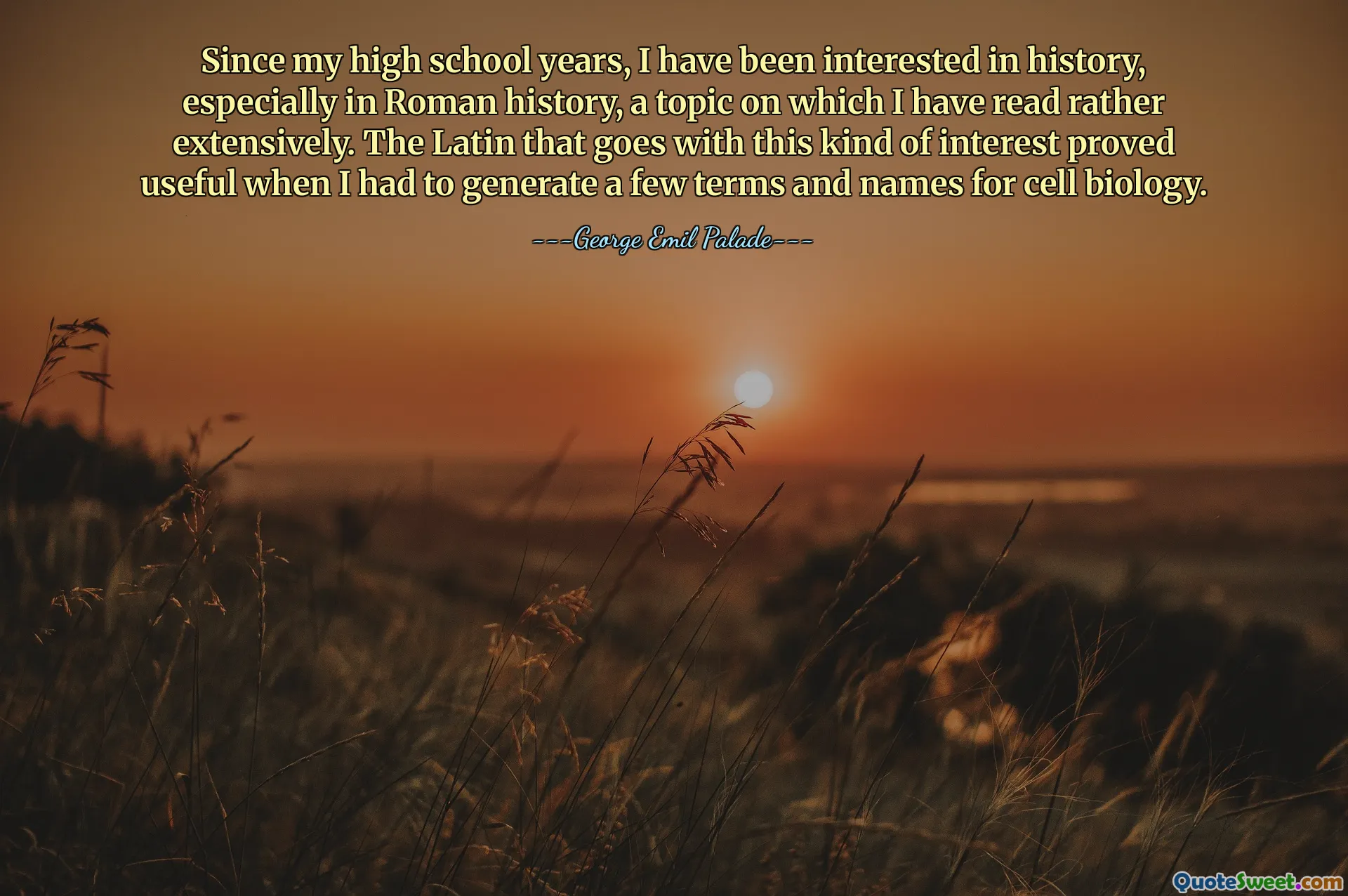
Since my high school years, I have been interested in history, especially in Roman history, a topic on which I have read rather extensively. The Latin that goes with this kind of interest proved useful when I had to generate a few terms and names for cell biology.
The quote highlights the enduring influence of historical knowledge and language skills on scientific pursuits. It emphasizes that an appreciation for history, especially Latin, can transcend its original context and become a practical tool in areas like cell biology. This intersection reminds us that disciplines are interconnected; understanding ancient languages can facilitate comprehension of scientific terms rooted in Latin. The author’s journey exemplifies how intellectual curiosity cultivated in one area (history and Latin) can provide unexpected advantages in another (biology). It underscores the value of a broad educational foundation and the importance of interdisciplinary knowledge. Moreover, it illustrates the significance of linguistic skills in academic and professional success, especially in fields that utilize specialized terminology. This perspective encourages learners to pursue diverse interests and skills, recognizing that such pursuits often complement each other. The statement also reflects an appreciation for the value of classical education, which, despite its age, continues to influence modern science and scholarship. It serves as a reminder that the skills we acquire—be they historical, linguistic, or scientific—can serve us in unexpected ways, enriching our understanding and capabilities across various domains.











